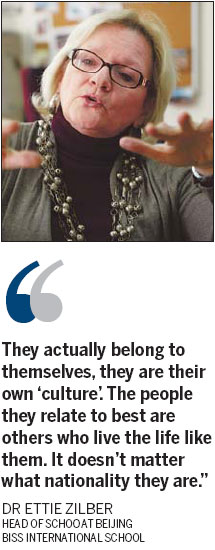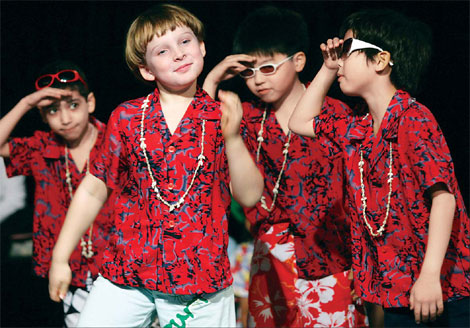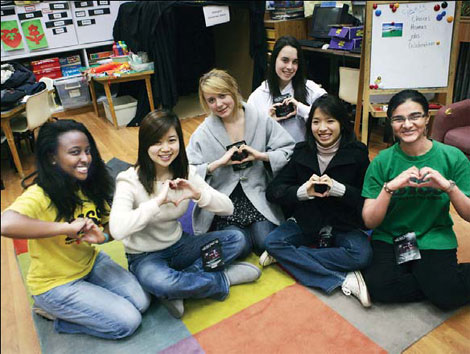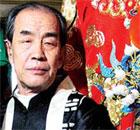Education
Third culture kids bright, but different
By Wang Wei (China Daily)
Updated: 2010-03-23 08:08
 |
Large Medium Small |
|
Students at BISS International School rehearse for an upcoming charity event. Zou Hong / China Daily |
Despite her 13 years of experience living in three countries prior to China, Jessie Demna, 17, felt disoriented when she arrived in Beijing four years ago.
The taxi drivers didn't understand her and she had to constantly call her Chinese friends and ask them to talk to the driver.
"I tried to speak English to the cab driver, but he did not understand a single word I was saying," Demna said. "It was difficult every time. But each time I knew I could overcome the challenges and meet new friends."
| ||||
Jessie was born and lived in Australia on-and-off for eight years; she stayed in Indonesia for a year, four years in Singapore and then moved to Beijing four years ago. Now she is an 11-grader at Beijing BISS International School where her parents teach.
"When I first arrived in Beijing, I knew nothing about the languages, and the traffic gave me a hard time. It took me half a year to get fully used to it," she said.
In Beijing there are now 30,000 international students according to figures from the exit and entry administration of the Beijing municipal public security bureau. They study at 19 international schools and 98 private and public local schools that accept international students, according to the Beijing Municipal Commission of Education.

Dr Ettie Zilber, head of school at Beijing BISS International School, whose long career in international education has taken her to international schools in five countries outside her native USA, says third culture kids are a unique group of children who have very good communication, diplomatic and languages skills and who achieve excellent study results. She dedicated her doctoral research to TCKs and has recently published a book on the topic.
"About 90 percent of third culture kids have university degrees and 40 percent received postgraduate or doctoral degrees worldwide," said Dr Zilber.
"The percentage is so high partly because their parents are highly educated and intelligent people. Most have university education themselves."
She said the third cultural kid tends to be more flexible and adaptable. They know languages and are appreciative of different cultures. They think differently from their parents, because their parents grow up in one culture, while their kids grow up in different cultures.
She said sometimes it caused parents some frustration when their children think and behave differently from them.
"When you make the decision to become internationally mobile, you are changing you children. I think it is a good thing, but not necessarily all parents identify it as a good thing."
But Dr. Zilber said there was also a negative side as the children had to say goodbye to friends each time they moved, and the constant mobility could make it difficult to forge an identity.
"They actually belong to themselves, they are their own 'culture'. The people they relate to best are others who live the life like them. It doesn't matter what nationality they are," she said.
Jessie said, "Although it is hard to frequently adapt to a new environment and culture and learn new languages, I think I am really lucky to be able to experience so many exciting things in different countries."
Jessie and her five classmates in grade 11 have prepared a upcoming charity concert to be held at the end of this month. To organize the event required talking with advertisers, sponsors and designers to maximize their contributions.
"I feel it's rewarding that I could help people who are in need while practicing my communication skills during the process," she said.
China Daily
|
Students at BISS International School raise funds for a charity concert. Zou Hong / China Daily |










